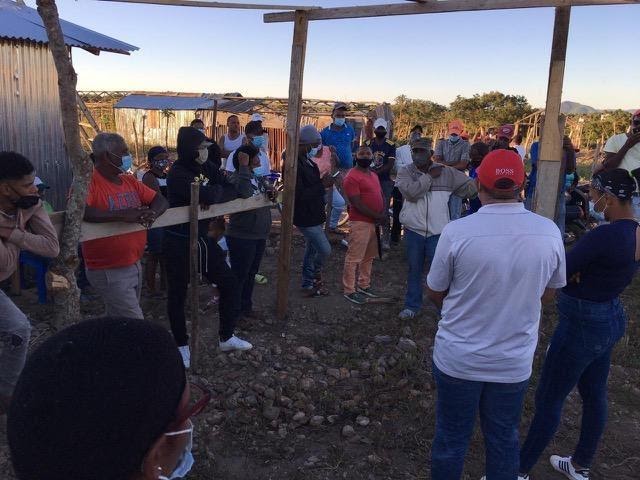For the first part of this story, click here.
More than 24 families from El Seibo, a community in the Dominican Republic, are still waiting for a judge from the U.S District Court for the Southern District of Florida to accept or reject a motion that would dismiss a lawsuit filed against two sugar giants.
The families have requested reparations from the Fanjul Corporation (CF), a sugar and real estate conglomerate established in West Palm Beach and the Dominican Republic, and the Central Romana Corporation (CR), one of its investments. They claim material and psychological damage due to the violent eviction and subsequent destruction of their homes by CR guards on the night of January 25, five years ago.
Para la versión en español, haga clic aqui.
“Someone has to do something,” said Emily Sierra, a member of one of the families who filed the lawsuit. “This has to stop.”
So far, evictions continue. Mrs. Sierra lost her home in a new eviction on July 9, in the middle of the pandemic.
According to Dominican priest, father Miguel Ángel Gullón, who has supported the legal struggles of the families of El Seibo since the first eviction in 2016, the CR has issued a “new threat of eviction” to another 40 families with more than 50 children under the age of 10.

As SFMN previously reported, the families evicted in 2016 appealed to local authorities in the Dominican Republic, and their case escalated to the United Nations, but the lawsuit did not progress.
“The process was filed by a judge, there was no appeal, and the deadline expired,” said Guillermo Nolasco, legal representative of the families evicted this summer in the community of El Seibo.
After exhausting legal avenues in the Dominican Republic, 24 families decided to file a lawsuit in the Court of the Southern District of Florida claiming the eviction was illegal and brutal.
Emily Sierra said her daughter Yeidi, 10, motivated her action.
“I had to cover [my] girl with the first thing we found and then we went out to see what was going to happen,” said Sierra, who assured that since then, both have been traumatized: “I have been nervous, anything disturbs me and the girl equally. We have been with nerves like this.”

“There are follow-ups, although the pandemic delayed everything. The lawsuit is filed, and we know that they have wanted to annul it, [but] it is now in process,” explained Gullón.
The latest legal rebuttal, filed by the plaintiffs in late January in South Florida, added to a series of exchanges in response to CF and CR’s request that the lawsuit be dismissed. The plaintiffs delved into the argument that the Romana Corporation is an “alter ego” of the Fanjul Corporation.

The CF and the RC share machinery, funds, staff and office space as well as a network of business properties, the plaintiffs’ claim. For example, the CF owns 5,100 shares of Agro-Industrial Management, which in turn owns 35% of the shares of CR. The Fanjul Corporation also owns 72% of the shares of Florida Crystals, another large local employer that through its subsidiary, Okeelanta Corporation, places continuous direct orders to CR, the lawsuit says. Moreover, Florida Crystals’ executives share managerial and operational tasks among all the corporations. (See above graphic).
“We are going to require that the destroyed properties and assets be immediately restored and that a compensation of $3.5 million (dollars) be paid to the affected,” declared Nolasco.

If their options on the island are exhausted, these homeless families could decide to follow the same legal argument put forward in the first lawsuit in the U.S.: “Fanjul is the largest landowner and the largest employer in the Dominican Republic, as well as the main sugar producer in the Dominican Republic. Fanjul wields enormous influence in the Dominican Republic, including in the government and the judicial system. Given this influence, the plaintiffs would not have a fair opportunity to litigate their claims [in this country].”
Silvana Luna and Sylvana Perez contributed to this report.

































